The dismissed value of Hometown Story
Hometown Story released on the 3DS back in 2013 in Japan and America, followed by Europe and Australia in 2014. The game was quickly hit with mediocre reviews as soon as it dropped.
This is perhaps due to the fact that the mind behind it was Yasuhiro Wada, the creator of what is now known as the Story of Seasons series, which created an immense amount of hype and certain expectations — which some critics didn’t feel were met. And alongside his direction was a stellar soundtrack delivered by none other than Final Fantasy’s Nobuo Uematsu.
Sadly, despite the pedigree of its creators, Hometown Story ultimately failed to impress critics and players. But is it really deserving of all the criticism it received? I’m looking back on the title today to give that question some thought — and to give the game itself some much-needed love and affection.
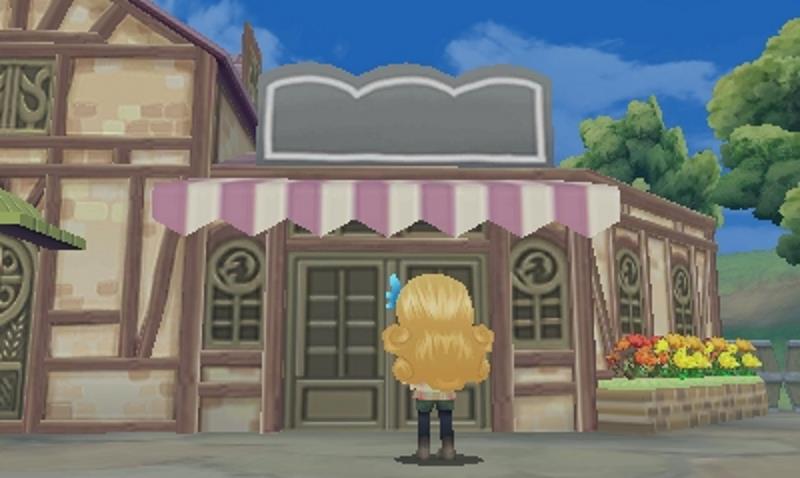
A relaxing, feel-good journey of your own
Simulator games are infamous for their laid-back and relaxing mechanics. The sense of urgency in these games is almost non-existent, save for tending to your crops before they are destroyed as the next month rolls by in Harvest Moon/Story of Seasons, or needing to fulfil a quest before it expires in Stardew Valley.
Hometown Story is no exception to this, even though everyone traverses the map at a humorously awkward fast pace. This is rather at odds with how the story itself unravels completely at your own pace and by your own doing.
As you play Hometown Story, the townspeople will make requests for you to stock certain items that advance their own storylines. These items can be bought and displayed in your store until they trigger the cutscene to fulfil the request. Such a system makes all cutscenes and events within Hometown Story unmissable no matter how you play it or how long you take to encounter the storyline.
Not only does this make this highly suitable for younger players, but it provides an even more easy going simulator experience compared to every other title in the genre.
On top of how slow-paced the game is, it even introduces us into its cosy, small town setting with very little fanfare. Hometown Story quite literally dumps us into your store with little instruction or objective.
We know we are taking over our grandmother’s store after her passing, but where do we go from here? The tutorial in itself takes a mere two minutes to complete, and we’re then thrust into taking care of the store and find our way around the surprisingly expansive town that initially houses only ten other villagers. This actually leads into the game’s main appeal.
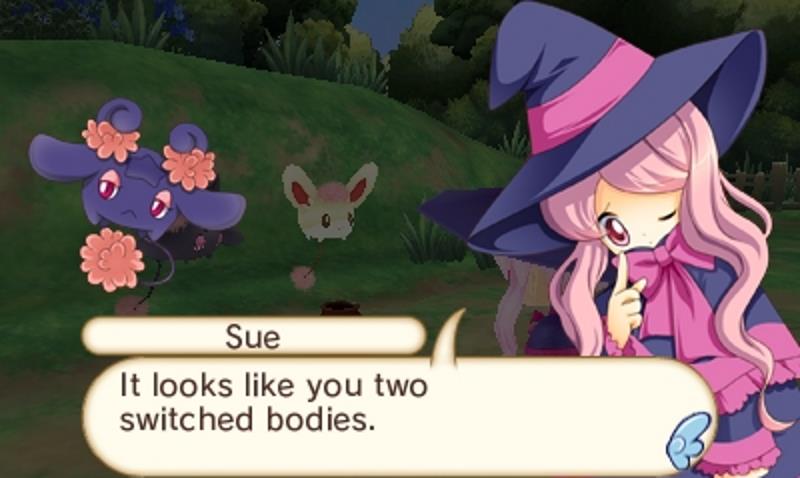
Sugar-coated capitalism never looked so good
What it comes down to is Hometown Story is set in a small countryside community where interaction further integrates everyone and unites the town as one. Wada has always drawn inspiration from his real life hometown, and Hometown Story is no exception to this — as you might expect from the name.
Everyone here leads a happy life, and everyone is tied to one another in one way or another. And this all leads back to our player character, whose store unifies the town through selling and trading. We see characters grow closer to one another through our completed requests, and the village expands further the more we work on the store to better its performance and appeal. More NPCs will seek out our wares and become a part of the town, leading to over a hundred virtual people settling in it.
As you progress, you’ll activate cutscenes and storylines by foraging for and buying new items, as well as selling those items in the store. While taking care of the store and serving customers should be your main task and the one you spend the most time doing to accumulate income, a major complaint towards the game is the grinding of this core gameplay element.
Initially, many days will go by as you idly stand by the till, waiting to serve customers — but as soon as you make enough money and obtain the materials needed to expand your store, then the challenge ramps up if you choose to engage with it.
The game takes into account a combo chain as you serve a queue of customers at the till, adding incentive to challenge yourself and achieve a big number. On top of this you’ll be running back and forth to the many shelves to restock and keep the interest in your store alive, with your ultimate goal being to make the most money possible in a single day. This is one of many targets you can set for yourself while playing Hometown Story.
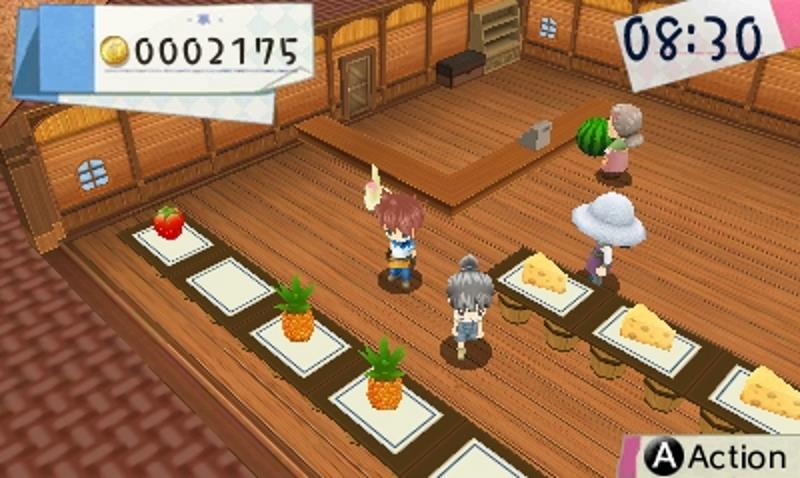
Finding meaning in the mundane
Hometown Story puts great emphasis on the importance of the player character being integral to the game’s world. Your shop is the only shop in the village, and your income is used only to improve your store, from expanding it to sell more items and serve more customers, to selling more exclusive items. The main objective of Hometown Story is to return to your hometown and make it your own: you’ll find your place in this cosy town and rebuild it to make it the best home for everyone in it, including yourself.
Many of the character driven cutscenes are slow paced as your relationship gradually improves with the individual, but mostly end up heartwarming and wholesome with life lessons and memorable, emotional cores to them.
Some can even be surprisingly relatable, covering topics ranging from social anxiety to accepting death, while others are shockingly dark, including subjects as varied as poor parenting and being falsely accused of a crime.
It was quite eye-opening to come across this sort of story in a game like this — especially considering the cute art we typically expect from games by this creator. It’s clear how much thought Wada put into making so many of the NPCs unique and individual while also fleshing out the village as a whole with so many different perspectives and lives being a part of it.
On the other hand, the hidden truths do nothing to hold back the gentleness and simplicity in this tranquil town — it’s consistently charming. Interestingly enough, the codename for Hometown Story during development was “Project Happiness”, since the whole point of the experience was to not just make the town and its people uplifted and united, but also to make the game itself the player’s own happy place.
Hometown Story offers many customisable options for a simulator game from 2014. From our character’s appearance to the whole setup of our store, from items to prices and stand positions, we have free rein immediately on how we best want to express our shop. Changes to your appearance can also be unlocked the further you advance in the story, such as different hairstyles and outfits. Alongside this, there are are specific items you can acquire to open up more possibilities of story progression — these act as a sort of “checklist” in lieu of the game’s menu unfortunately not providing a “journal” of sorts to highlight these significant achievements.
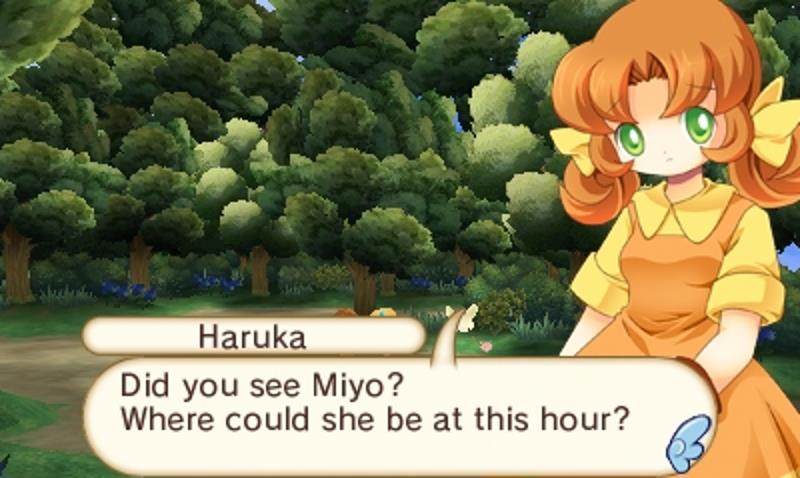
Unusual design choices and lots to do
Wada said he wanted to create a new IP to make way for new mechanics he never managed to implement in the Harvest Moon series. One of these key differences is with the 30 “story” characters who each have a large amount of characterisation and depth to them.
Key items and blue feather pieces are the main objectives you’ll need if you actually want to witness the end credits and “beat” the game, but making up a blue feather will allow you to grant only one villager’s wish. This means that multiple runthroughs of the game will be required to see all the storylines conclude — there are only so many blue feather pieces.
While there is marriage in the game, its progression is not as we would typically expect. We may be the main character, but our potential bachelors and bachelorettes are the ones doing the wooing. We can accept or reject the three romanceable characters when approached for dates, and at a later time, accept a proposal from one of them to seal the deal.
This leads into yet another unusual design choice in a game like this – the fact there’s no visible “friendship meter”. While this makes Hometown Story feel all the more genuine and seamless, it also makes for a lot of confusion and difficulty on the player’s side due to the ambiguity of characters’ opinion — or how far their relationship is with a potential marriage candidate.
Obvious actions will indeed increase each character’s affection towards the player, such as fulfilling requests of theirs or selling them their favourite item; the latter also increases the likelihood of them purchasing more expensive items over time.
Hometown Story has a lot of trial and error to it when advancing the narrative, and not just in terms of developing relationships. It can make the game slow going at times — and thanks to the games lack of popularity on its original release, you can’t necessarily count on there being a lot of help online for it, either. There are still plenty of unanswered questions!
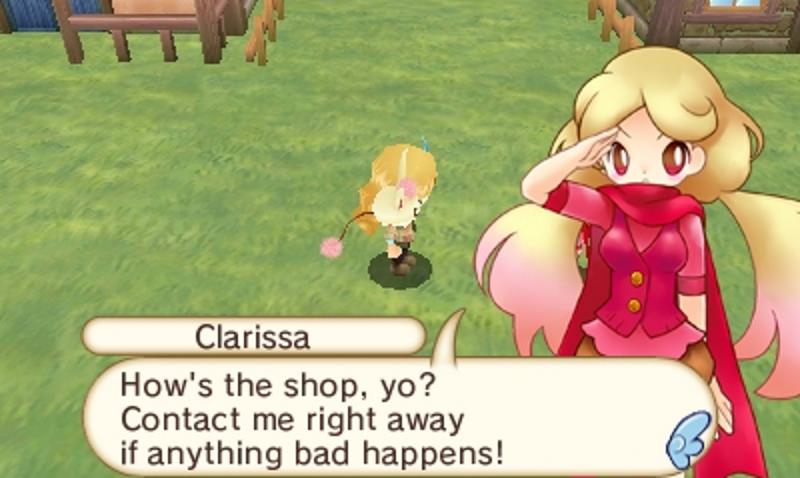
Closing thoughts
Games like Harvest Moon: Grand Bazaar and Recettear also involve the player character running a store or trading as the main gameplay mechanic, and while both easily have much more entertaining mechanics and narrative, Hometown Story ends up being more and more worthwhile the more time you spend with it.
Wada wanted to go back to basics with Hometown Story, and with its slow pace and simple mechanics it is evident he did what he intended to do with it. It’s truly perplexing how dismissive others have been of it.
It may very well not be for everyone due to the fact it leaves things feeling deliberately “free” and doesn’t hold your hand — but for those more patient, simulator loving gamers out there, you should absolutely add this to your collection. It can, after all, be picked up pretty cheap these days.
Have you played Hometown Story? What did you think? Let us know in the comments or via the usual social channels!
Join The Discussion
Rice Digital Discord
Rice Digital Twitter
Rice Digital Facebook
Or write us a letter for the Rice Digital Friday Letters Page by clicking here!
Disclosure: Some links in this article may be affiliate links, which means we may earn a small commission if you make a purchase after clicking on them. This is at no additional cost to you and helps support Rice Digital!
- Sigh of the Abyss: Shadow Bonds – Prologue Review - October 7, 2023
- Is She The Wolf? is wickedly addicting TV - October 6, 2023
- The steady consumption of Slow Damage - October 5, 2023






